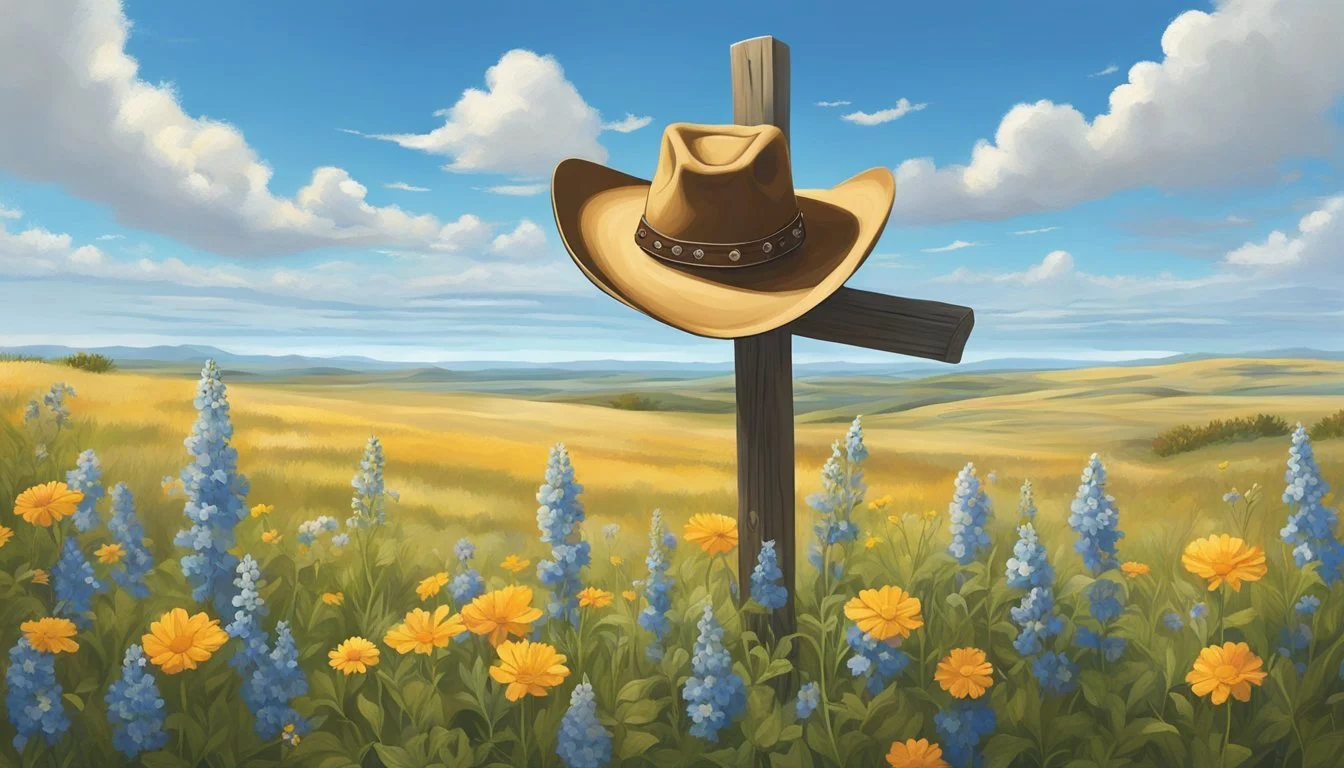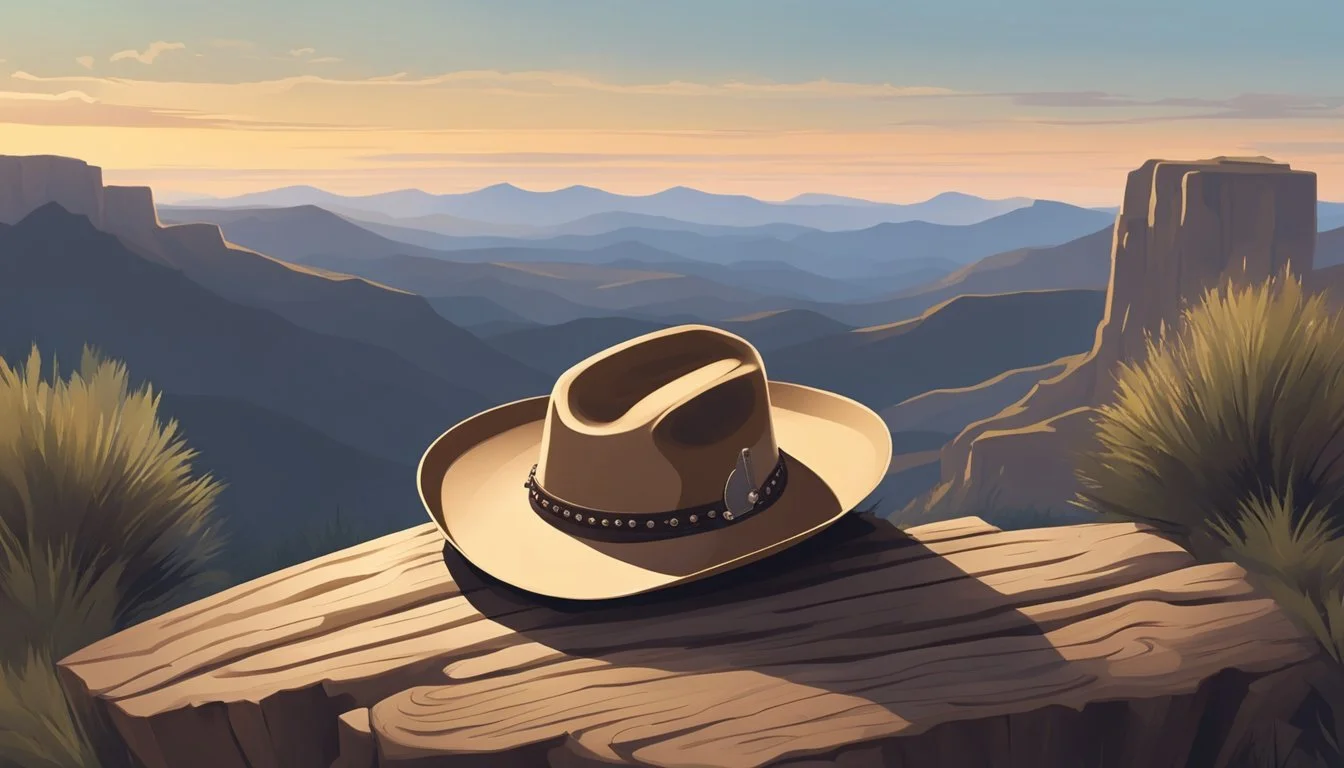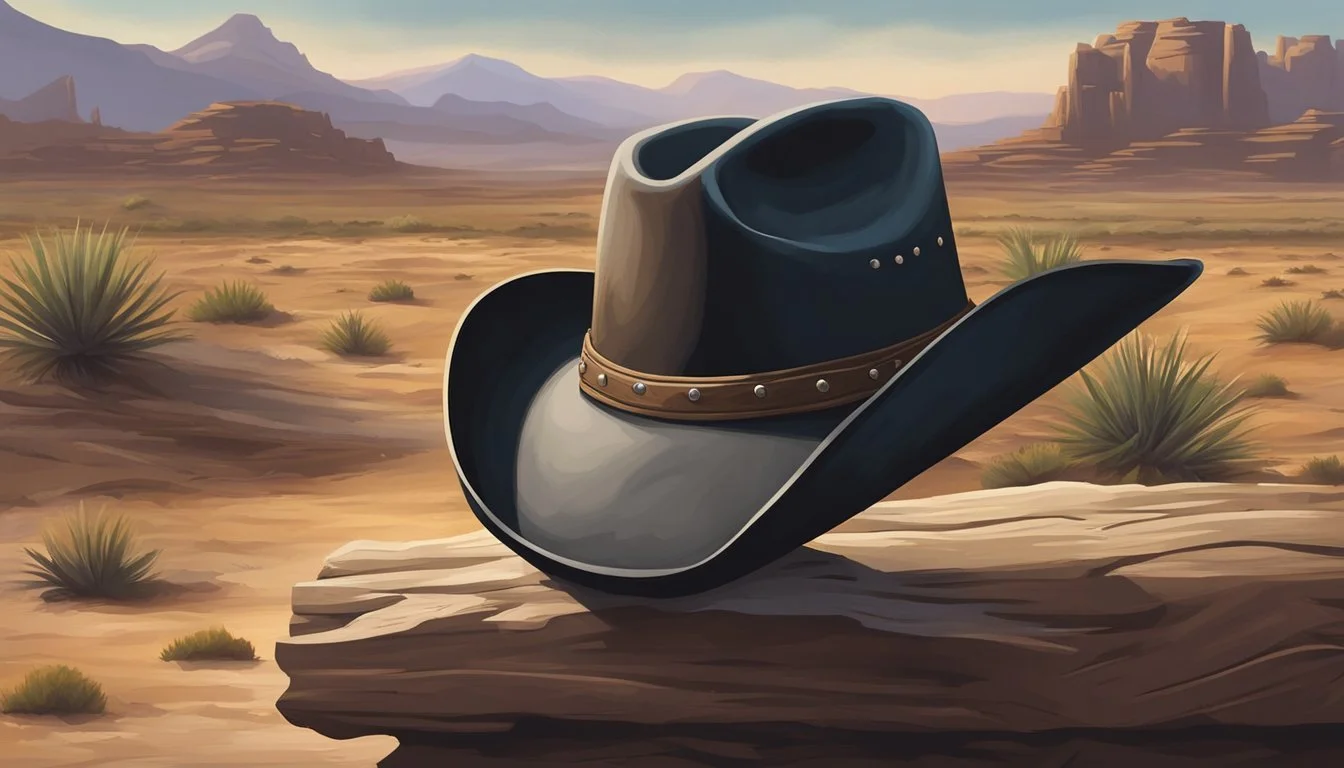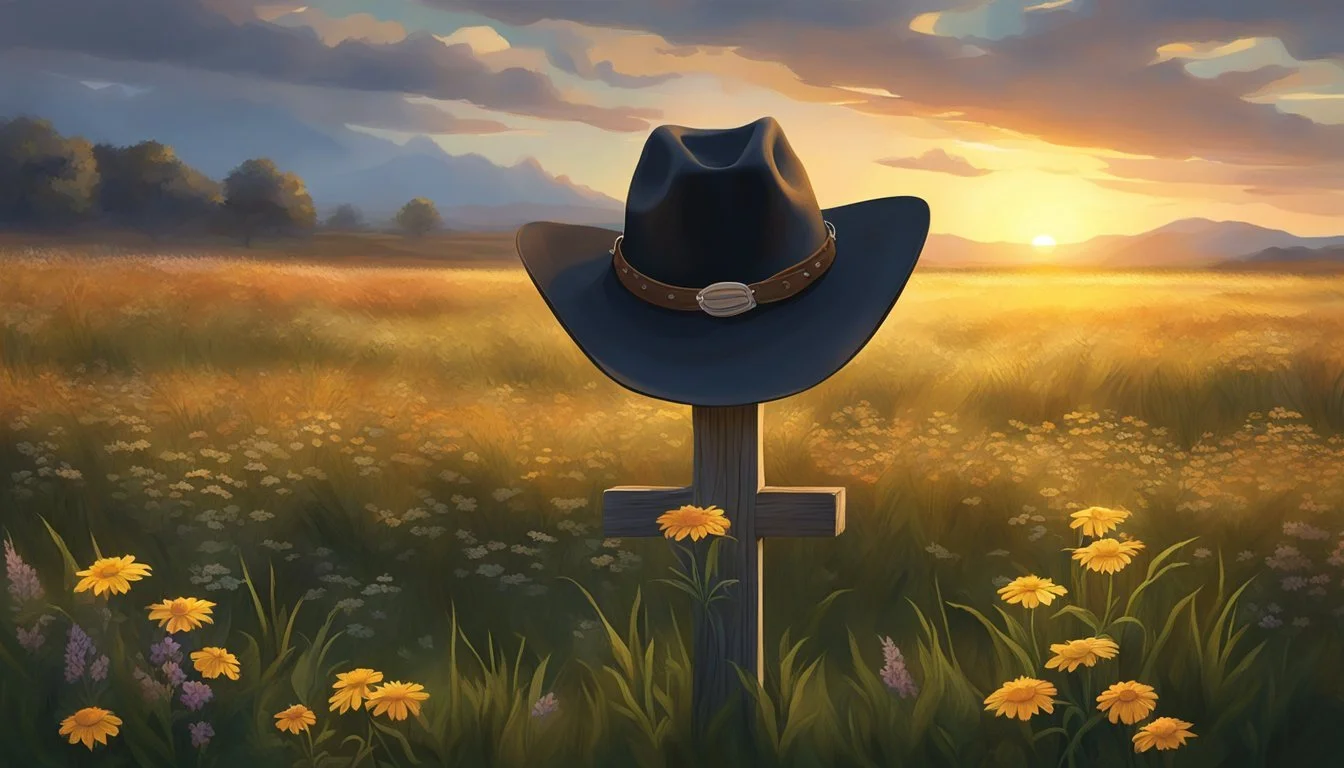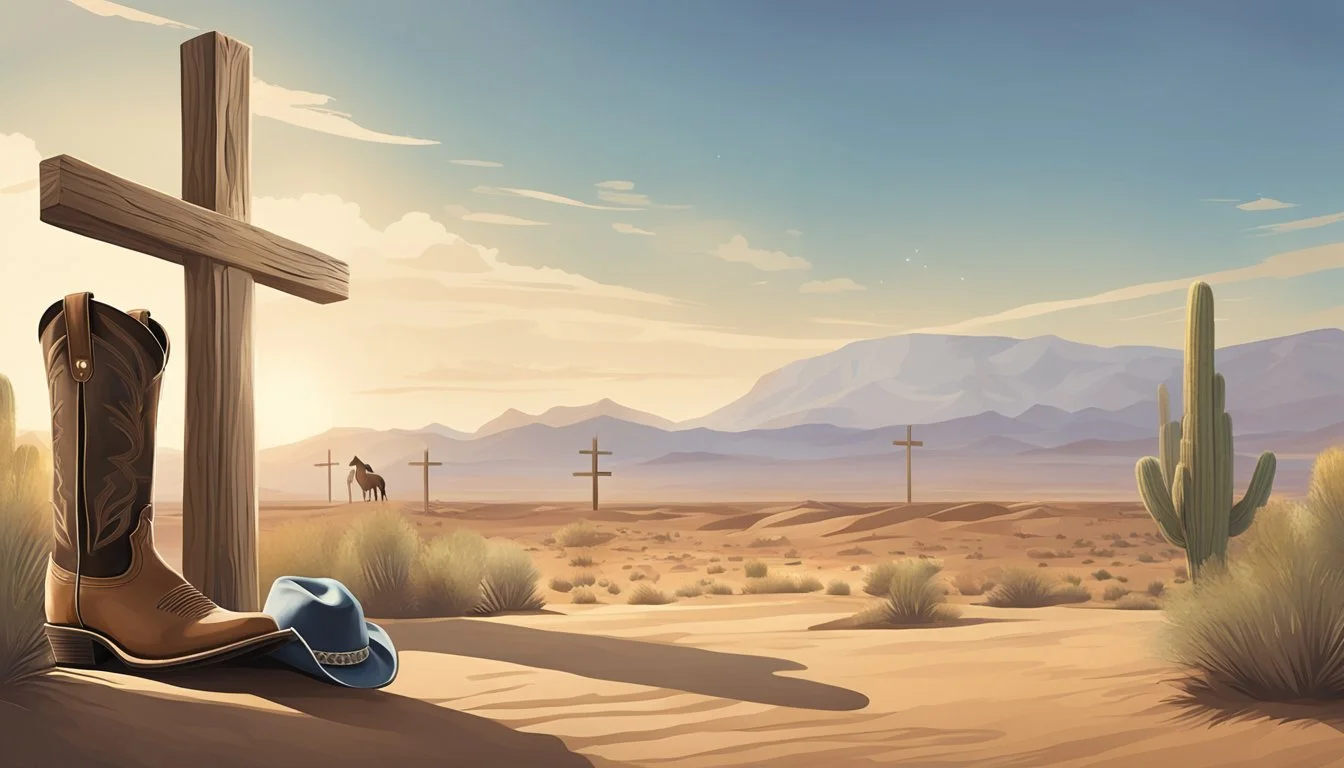The Tradition of Cowboy Funerals and Memorials
Honoring the Western Heritage
The tradition of cowboy funerals and memorials encapsulates the very essence of the cowboy way of life, reverberating with the undertones of the western spirit that these individuals lived by. Rooted in the expansive history of the American West and the rugged individualism of its people, these ceremonies are tailored to honor a life intertwined with freedom, the outdoors, and often, a deep connection with horses. As cowboys are known for their distinctive customs and values, the practices observed at their funerals are reflective of this unique lifestyle and culture.
At a cowboy funeral, the attire and rituals are often different from conventional services. Attendees might wear western-themed clothing such as cowboy boots, hats, and denim, with an emphasis on darker hues to maintain a somber and respectful atmosphere. Symbols and elements significant to the life and work of the departed – such as saddles, lassos, and spurs – may often be incorporated into the service, serving not just as a final farewell but as a lasting tribute to the values and passions that defined the cowboy's life.
Memorializing a cowboy involves both reflection and celebration; poetry, music, and blessings that evoke the grandeur of the West are frequently part of the proceedings. A cowboy funeral is likely to be as open-hearted and generous as the community that comes together to remember one of their own, balancing sorrow with a shared appreciation for the trails the departed has ridden and the legacy that they leave behind.
Historical Context of Cowboy Funerals
Cowboy funerals are steeped in the history and traditions of the American West, reflecting the unique lifestyle and cultural practices of the region's past.
The Evolution of the Tradition
The tradition of cowboy funerals has evolved from simple, often informal, ceremonies to more elaborate memorials over time. Initially, these funerals were pragmatic affairs due to the constant travel and remote living conditions faced by cowboys. The services maintained an aura of respect but lacked the formal structure commonly seen in more settled areas. As communities formed, cowboy funerals grew to include more ritual and ceremony, honoring the deceased's life and contributions to the cowboy culture.
Influence of Western Lifestyle
The Western lifestyle greatly influenced funeral traditions. Cowboys spent much of their lives outdoors, working cattle and traveling vast distances. This close relationship with nature and the land was often reflected in their memorials. Outdoor ceremonies, the use of horses and wagons for the final journey, and the incorporation of personal items like cowboy boots, hats, and saddles signified the enduring bond between the cowboys and their way of life.
Notable Historical Figures
Historical figures like George Brenton, who died in 1891 during a roundup, have become emblematic of the cowboy's perilous life. Brenton's funeral, documented and preserved in a photograph, serves as a poignant example of the rituals that honored cowboys who passed. These ceremonies were not just about mourning; they were a celebration of the cowboy's life, where stories were shared, and the Western tradition was palpably felt.
Cowboy Funerals Today
Today, cowboy funerals continue to blend modern practices with time-honored traditions, emphasizing themes such as community and the cowboy spirit. These events often reflect the deceased's connection to the western lifestyle, characterized by unity, faith, and tradition.
Modern Practices vs. Traditional Elements
Cowboy funerals today encapsulate a reverence for historical traditions alongside contemporary adaptations. Traditional elements such as horse-led processions maintain their place. However, modern practices, including memorial cards featuring cowboy poetry and social media sharing, also find their way into these services. The balance between the two demonstrates a respect for cowboy heritage while allowing for current expressions of grief and remembrance.
Common Themes and Rituals
The cowboy funeral is rich with rituals that signify love, unity, and a respect for nature, often featuring:
Equestrian participation, where horses are included in the ceremony as a nod to the cowboy's life.
Readings of cowboy prayers or poetry, capturing the essence of the Wild West and their adventurous spirit.
Apparel, with mourners typically donning somber-colored western wear like cowboy hats and boots to honor the deceased.
The Role of Family and Community
At the core of cowboy funerals is the involvement of family and community, reflecting strong bonds of support and affection. These funerals are community-centric events, sometimes drawing large gatherings of local cowboys to pay their respects. The collective mourning process not only offers solace to the bereaved family but also strengthens the ties of the cowboy community, underlying their shared values and honoring the life of their departed comrade.
Cultural Significance
Cowboy funerals and memorials are steeped in tradition, echoing the values and lifestyle of the American West. These ceremonies typically incorporate key cultural symbols, dress codes, and music and poetry, each pinpointing the unique heritage of the cowboy life.
Cowboy Symbols and Their Meanings
At cowboy memorials, various symbols are used to honor the spirit and legacy of the deceased. Cowboy boots often signify the journey taken and the work accomplished. They are sometimes placed upside down, signifying the end of a cowboy’s journey. Cowboy hats, another central symbol, convey respect and are usually held or placed near the heart as a sign of mourning.
Music and Poetry in Cowboy Memorials
Music and poetry serve as poignant expressions of loss and remembrance at cowboy funerals. Funeral songs and poems often draw on themes of nature, the passage of time, and a life well-lived, reflecting the cowboy's connection to the land and their community. Traditional funeral songs may be performed live, evoking a sense of communal solace and shared history.
Dress and Personal Effects
The dress code at cowboy funerals is a direct reflection of the individual's way of life. Mourners typically wear dark colored cowboy attire as a sign of respect. Cowboy boots and hats are integral, as they represent the practical tools of the cowboy's trade and, in this context, become powerful emblems of their identity. Personal effects, such as a favorite belt buckle or bandana, may also be displayed or worn, honoring the personal story of the departed.
Noteworthy People and Places
The tradition of cowboy funerals and memorials holds a special place in American history, with particular individuals and locations standing out for their roles in honoring the Old West's legacy.
Famous Cowboys and Their Last Rites
The send-off of a famed cowboy often resonates throughout the community, embodying the spirit of the Old West. One notable farewell was for George Brenton, a young cowboy who tragically lost his life in 1891 during a roundup. His funeral took place in Baca County, Colorado, an area steeped in cowboy history.
Another poignant site is the Carrizo Springs Cemetery in Texas, which serves as the final resting place for numerous cowboys, including some of the era's most respected figures like "Famous Earl", a moniker that has been bestowed on a number of cowboys renowned for their skills and character. This cemetery stands as a hallmark of Texas's cowboy heritage.
Iconic Locations for Cowboy Funerals
When it comes to locations that have become synonymous with cowboy memorials, certain places come immediately to mind. Texas, with its rich cowboy culture, is home to many cemeteries and funeral sites that honor the cowboys' legacies. A specific place noted for its cowboy burials is Carrizo Springs Cemetery in Texas, where headstones often bear witness to the lifestyles of the individuals resting there.
In Colorado, Baca County has emerged as a symbolic area for cowboy funerals. The poignant image from 1891 depicting the aforementioned funeral of George Brenton in Baca epitomizes the solemnity and communal respect reserved for cowboys who passed. This county tells a story of the old West with every cowboy's grave it cradles.
Personalizing Cowboy Funerals
Cowboy funerals often reflect the individuality of the departed, celebrating their life and legacy with carefully chosen tributes that resonate with family and friends.
Telling the Story of a Life
Personalizing a cowboy funeral often involves highlighting the unique story of the cowboy or cowgirl's life. This can be achieved by featuring photographs, cherished possessions, or symbols that showcase their passion for the western lifestyle in the service. Displaying items such as a favorite saddle, lasso, or boots can act as powerful visual tributes. Including readings of poems or excerpts from literature that the deceased admired can also add a meaningful touch to tell the story of their life.
Involvement of Friends and Loved Ones
The active participation of family and friends is crucial in creating a memorable and unifying ceremony. Encouraging loved ones to share stories or anecdotes during the service can foster a sense of community and celebrate the love and friendships that were important to the departed. For children and teens in attendance, wearing a cowboy hat or boots in accordance with cowboy etiquette serves as a way for the younger generation to pay respects and commemorate the lifestyle upheld by the individual. This involvement not only honors the memory of the deceased but also strengthens the bonds between those gathered to pay tribute.
Types of Cowboy Funeral Services
Cowboy funeral services pay homage to the western heritage and the unique lifestyle of cowboys. They are tailored to reflect the values and the spirit of the deceased, often incorporating customs that are deeply rooted in cowboy culture.
Traditional Burial Services
In traditional burial services, the cowboy's final resting place is often at a cemetery with distinctive western features. Services are sometimes held in a church, but it's not uncommon for them to take place outdoors on the open range. The attire often includes staples like cowboy boots and hats, and the setting might showcase personal items such as saddles or ropes. Wearers of bolo ties instead of conventional dress ties are common, signifying the cowboy's way of life.
Cremation and Memorials
Cremation services for cowboys may include a personalized memorial service, where keepsakes like spurs or pieces of tack may be displayed. The ashes may be spread in a place that was significant to the cowboy, such as a beloved ranch or trail. Memorials can range from simple markers to more elaborate tributes that capture the essence of the cowboy spirit.
Celebration of Life Events
Celebration of life events are vibrant and often held in lieu of a somber funeral, celebrating the cowboy's life stories and contributions. They can feature live western music, storytelling, and shared memories among attendees. The gatherings might be held at a family ranch, community hall, or any significant place that honors the cowboy's memory. These celebrations provide an opportunity for laughter and joy, in recognition of the cowboy's legacy.
Role of Belief Systems
Belief systems furnish the framework through which cowboy funerals and memorials are understood and practiced. They reflect a blend of faith, spirituality, and cultural traditions specific to the cowboy way of life.
Faith and Spirituality
In cowboy culture, faith and spirituality often take on a pragmatic and individualistic hue. Cowboys may adhere to a Christian framework, with references to God and Christian virtues appearing frequently in their memorial practices. However, one is likely to observe a tailored approach to faith that incorporates tenets of self-reliance and freedom—values deeply rooted in the cowboy ethos.
Church attendance: Not always regular, but funeral services might occur in a church setting.
Prayers: Tailored to reflect personal beliefs and the individual life of the cowboy.
Hymns and music: Might mix traditional Christian songs with Western ballads that reflect the cowboy’s life and values.
Afterlife Beliefs in Cowboy Culture
Cowboy culture holds varied afterlife beliefs that merge Christian concepts with frontier stoicism. The notion of an afterlife is embraced, with many cowboys believing in a Heaven where they’ll reunite with passed loved ones and fallen comrades.
Heaven as the 'Last Frontier': Often idealized as a vast, open range akin to the unspoiled West.
Memorial customs: Reflect a belief in an ongoing spiritual presence or legacy, such as leaving the cowboy's horse saddled but riderless.
Ceremonial acts: Such as the "Last Ride" or the "Final Campfire" symbolize the journey into the afterlife and the continuity of the cowboy's spirit.
Planning and Preparing for a Cowboy Funeral
In honoring the enduring spirit and tradition of the cowboy, planning a cowboy funeral involves selecting an appropriate location, adhering to specific etiquette, and considering how to maintain the deceased's legacy.
Choosing the Right Location
The location for a cowboy funeral should reflect the deceased's connection to ranching or countryside life. Families often choose settings such as a family ranch, a rural church, or even open prairies that embody the cowboy's love for vast landscapes. The selected location must honor the cowboy's perseverance and respect for the land.
Cowboy Funeral Etiquette
Attire at a cowboy funeral typically includes:
Men: A cowboy hat (worn with respect), a nice pair of jeans, a button-up shirt, and cowboy boots.
Women: Somber-toned western wear with modest boots, often complemented by a hat.
Children should also dress appropriately, following the same respectful guidelines as adults. During the service, cowboy hat etiquette is observed; for men, this means removing the hat during prayers or when indoors, if the service is not outside.
Future Considerations and Legacies
Planning a cowboy funeral involves not only the immediate event but also how the cowboy's courage and legacy are honored moving forward. This might include setting up a scholarship for local rodeo athletes, a memorial fund for land preservation, or a trust for future family generations. The cowboy's legacy is often marked by their tireless spirit and connection to community and land, which can be celebrated and perpetuated through thoughtful, enduring tributes.
Reflections on the Cowboy Way of Life
The cowboy way of life, grounded in the vast landscapes of the American West, continues to inspire with its representations of freedom and adventure. Historically, cowboys exemplified resilience and independence, managing cattle and working through the challenges posed by nature itself.
Their lifestyle, which encapsulates a spirited connection to the land, speaks to a broader cultural identity that treasures self-reliance. Cowboys, in their daily lives, showcased an admirable blend of bravery, honesty, and a straightforward moral compass, a reflection of the so-called "Code of the West."
Today, the western lifestyle still captures imaginations, emphasizing a simpler, unwavering approach to life amidst an ever-changing, complex world. It underscores the following virtues:
Loyalty: Commitment to community and family
Honesty: A straightforward and truthful demeanor
Courage: Facing hardships without fear
Respect: For both people and nature
Hard work: The backbone of cowboy ethics
These values resonate in modern narratives, influencing not just those who live within the geographical confines of the West, but many who seek to embody these ideals in their own lives. Truly, the cowboy way of life remains a touchstone for those drawn to its undeniable allure and the promise of what living freely under the open sky entails.

